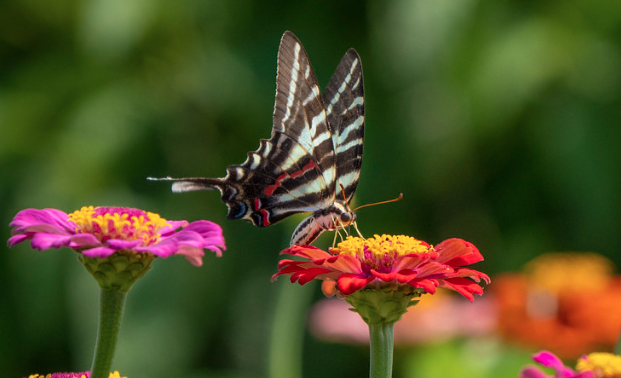Pollinators

Animal and insect pollinators help plants reproduce and support healthy ecosystems and food security. Pollination benefits around 78% percent of the world’s crops, and one out of every three bites of our food--including fruits, vegetables, chocolate, nuts, and spices--depends on pollination services for production. Pollinators play an important role in generating more profitable yields on America's working lands: insect pollination services alone contribute an estimated $29 billion to US agriculture. Managed honey bees play an important role in providing these services, while also producing honey as well.
Pollinators are impacted by climate change in a number of ways. Warmer temperatures can encourage plants to bloom sooner than usual. Not all pollinators can adapt to an early blooming season, which means that many pollinators may have limited food availability from plants. Pollinators are also vulnerable to periods of drought. With warm weather and low precipitation, flowers produce less nectar to conserve energy. Reduced nectar means that pollinators get fewer calories and sugar which can lower pollinator health and reproduction. Extreme rainfall can also present a challenge, as it may reduce the number of hours pollinators can fly to gather floral resources. Climate change and associated extreme weather events may reduce the pollinators available to produce honey and provide pollination services for plant and crop reproduction.









